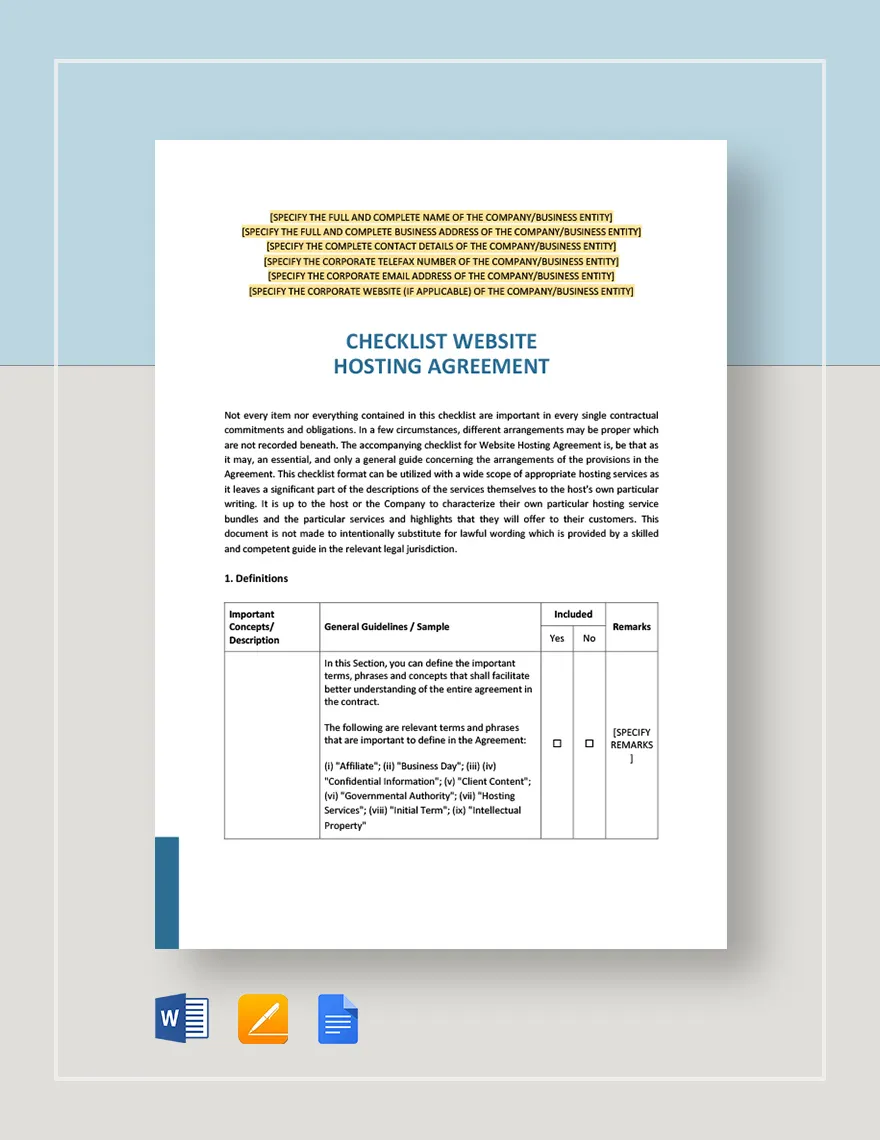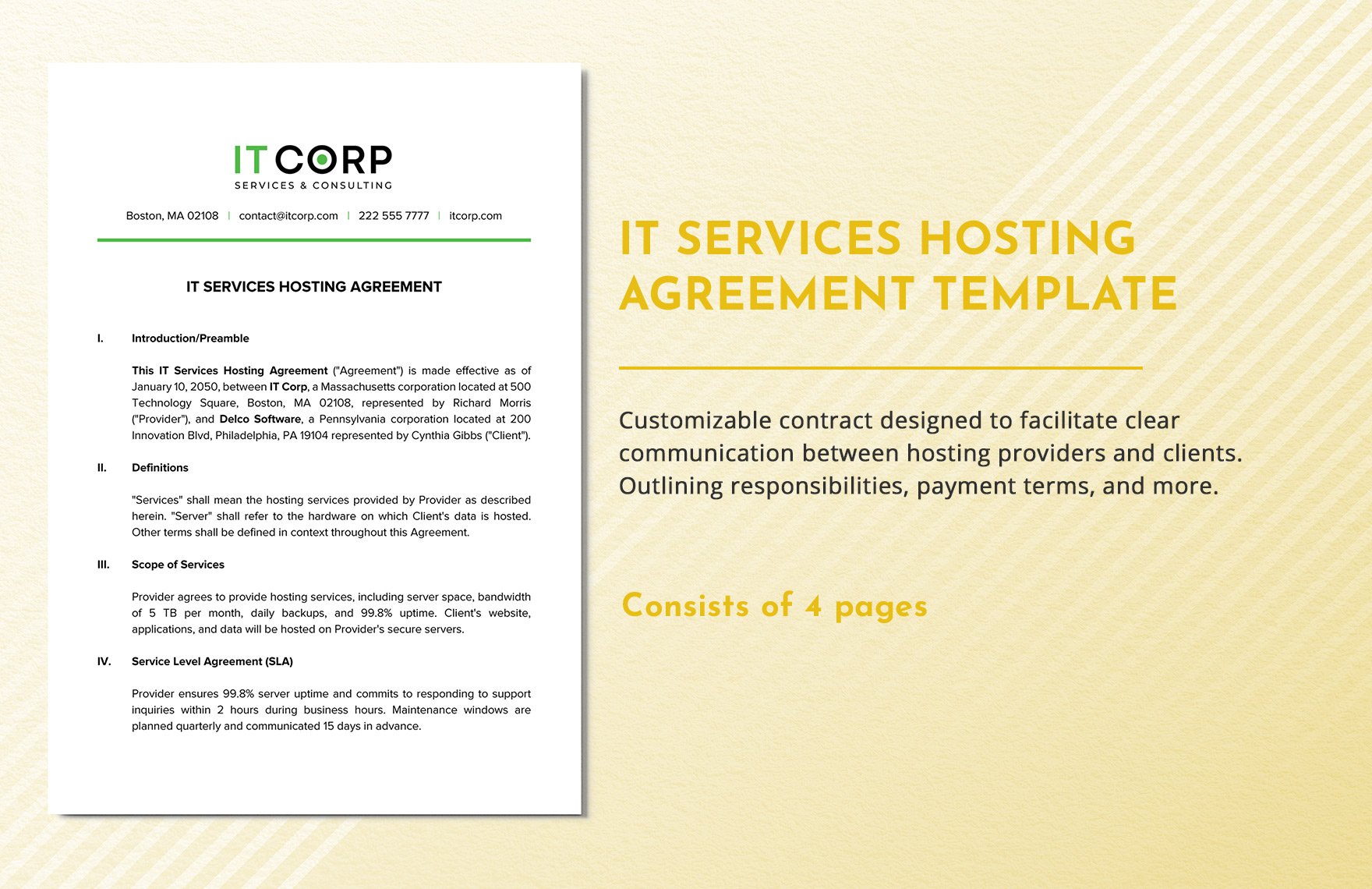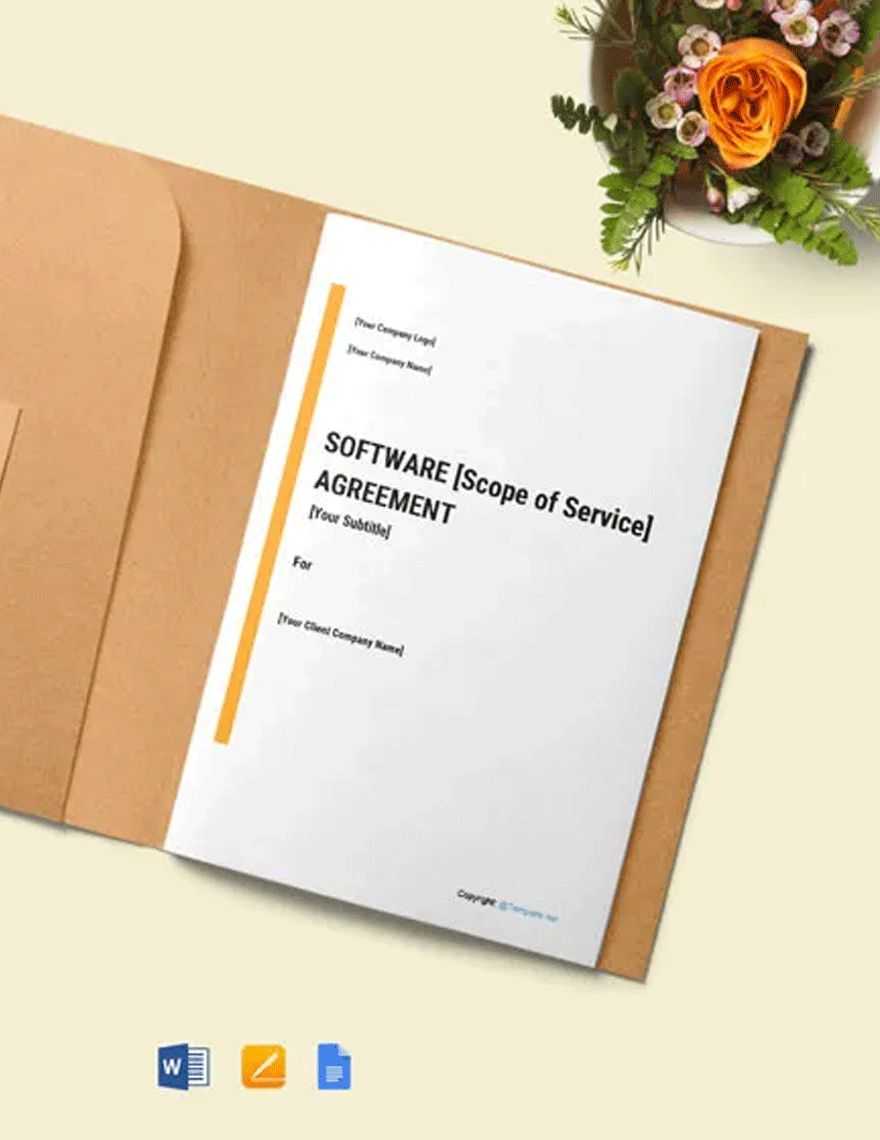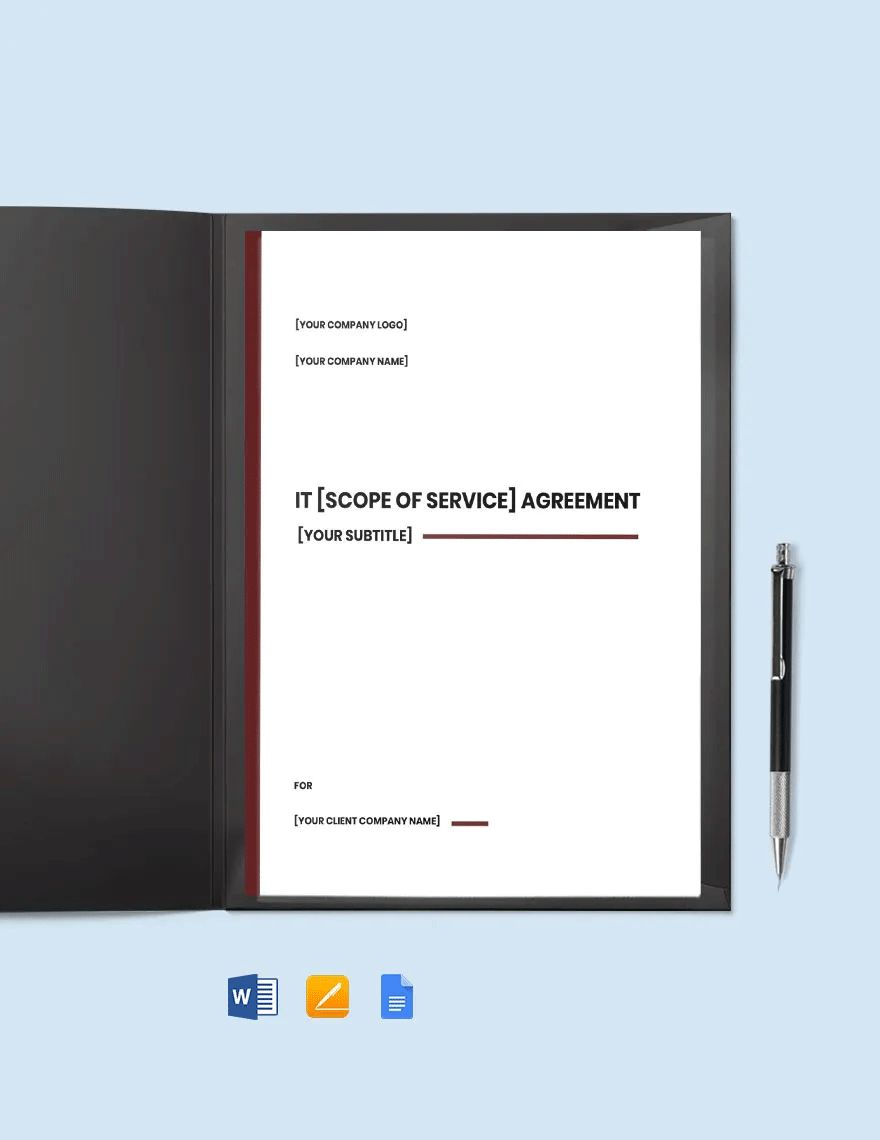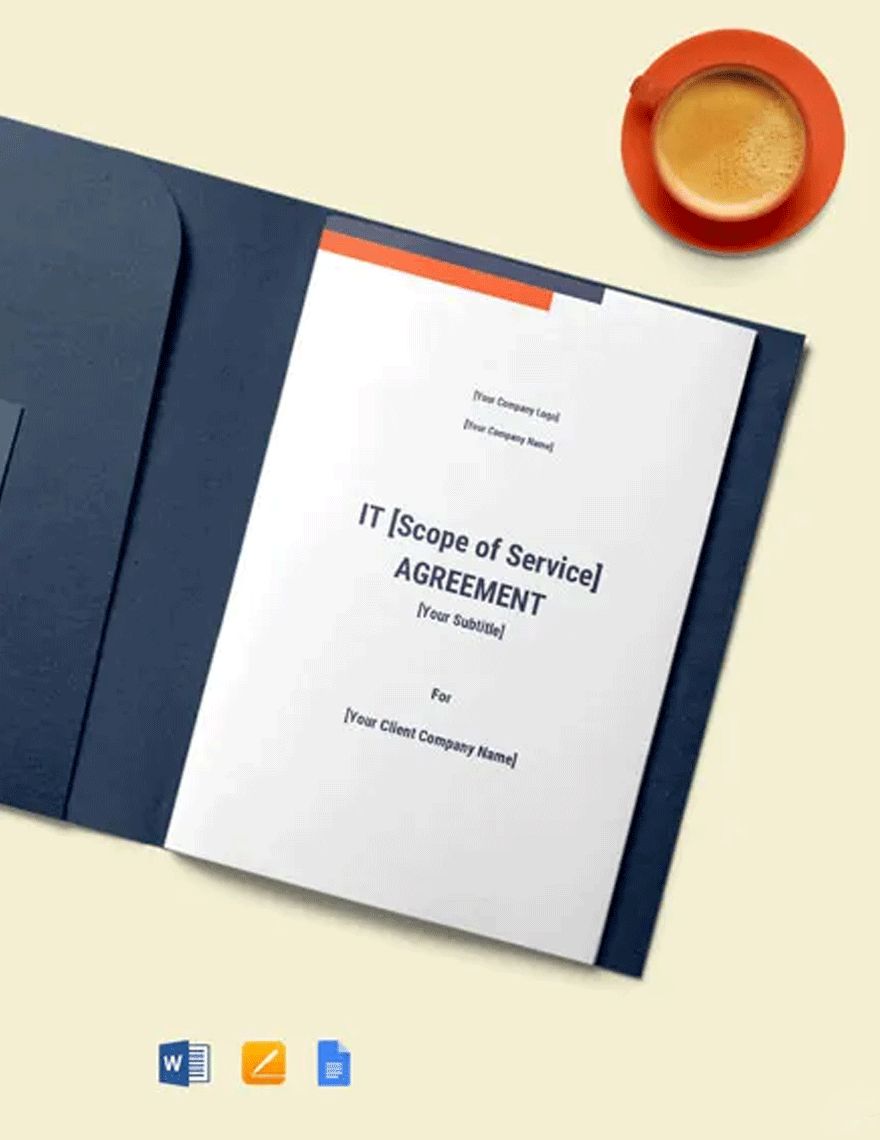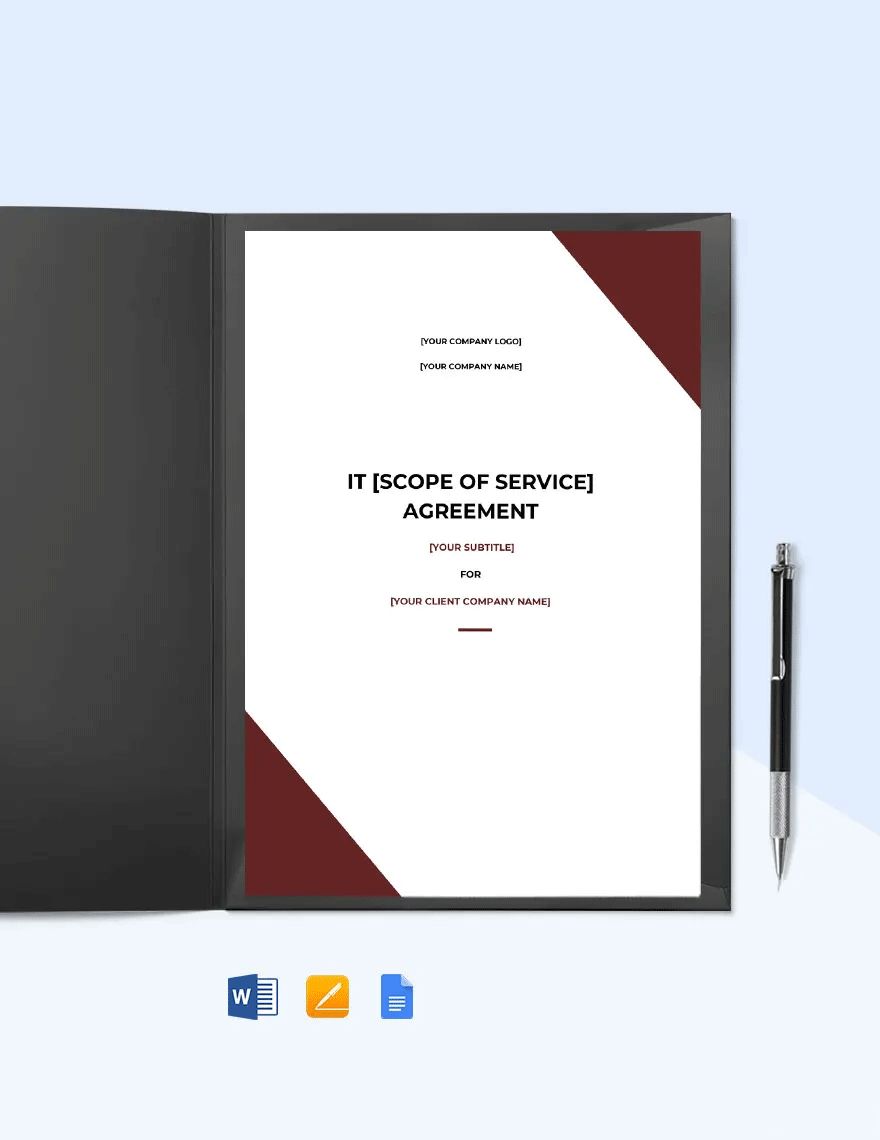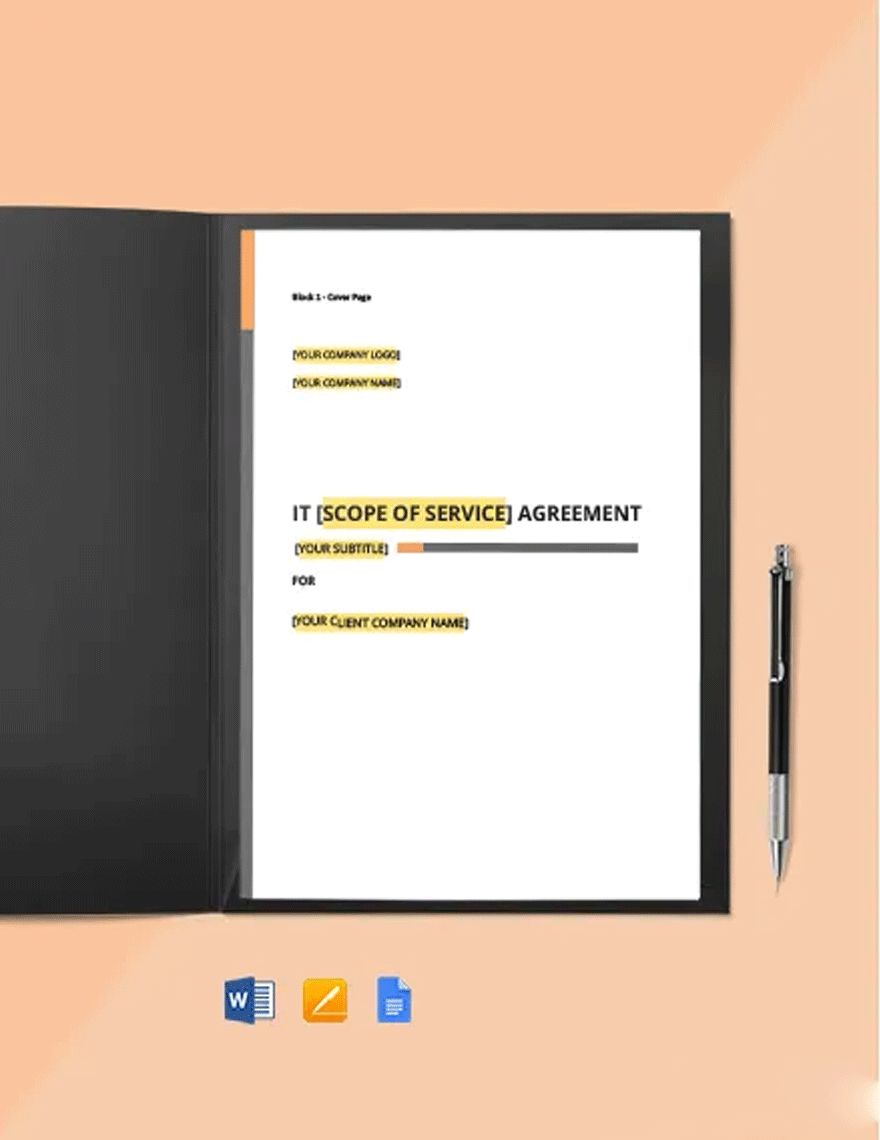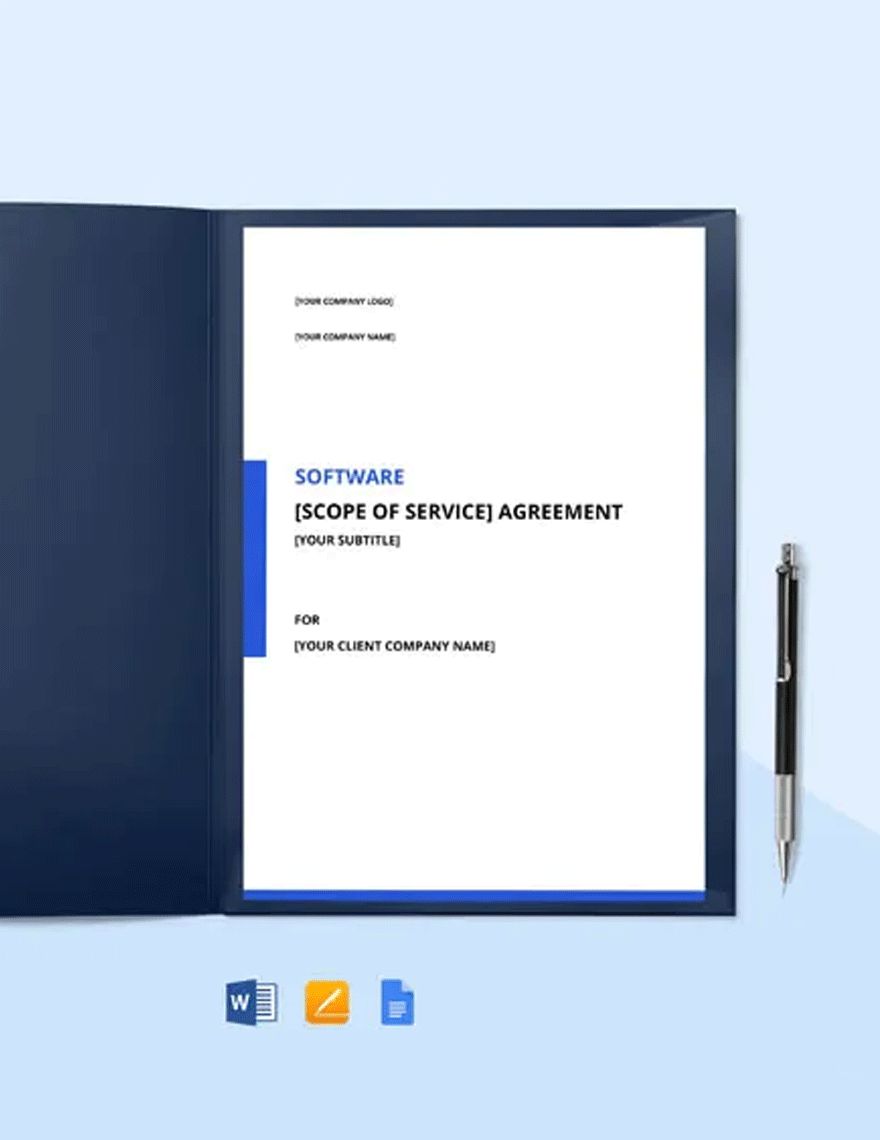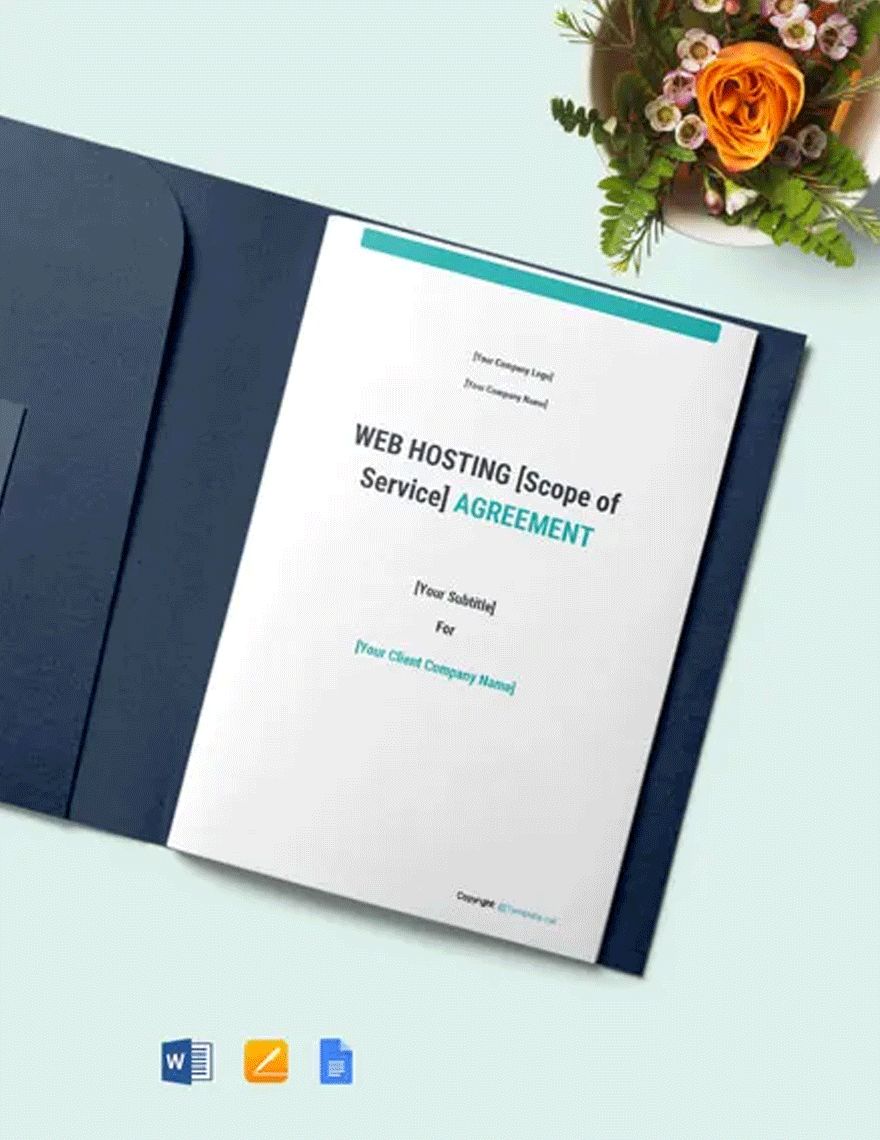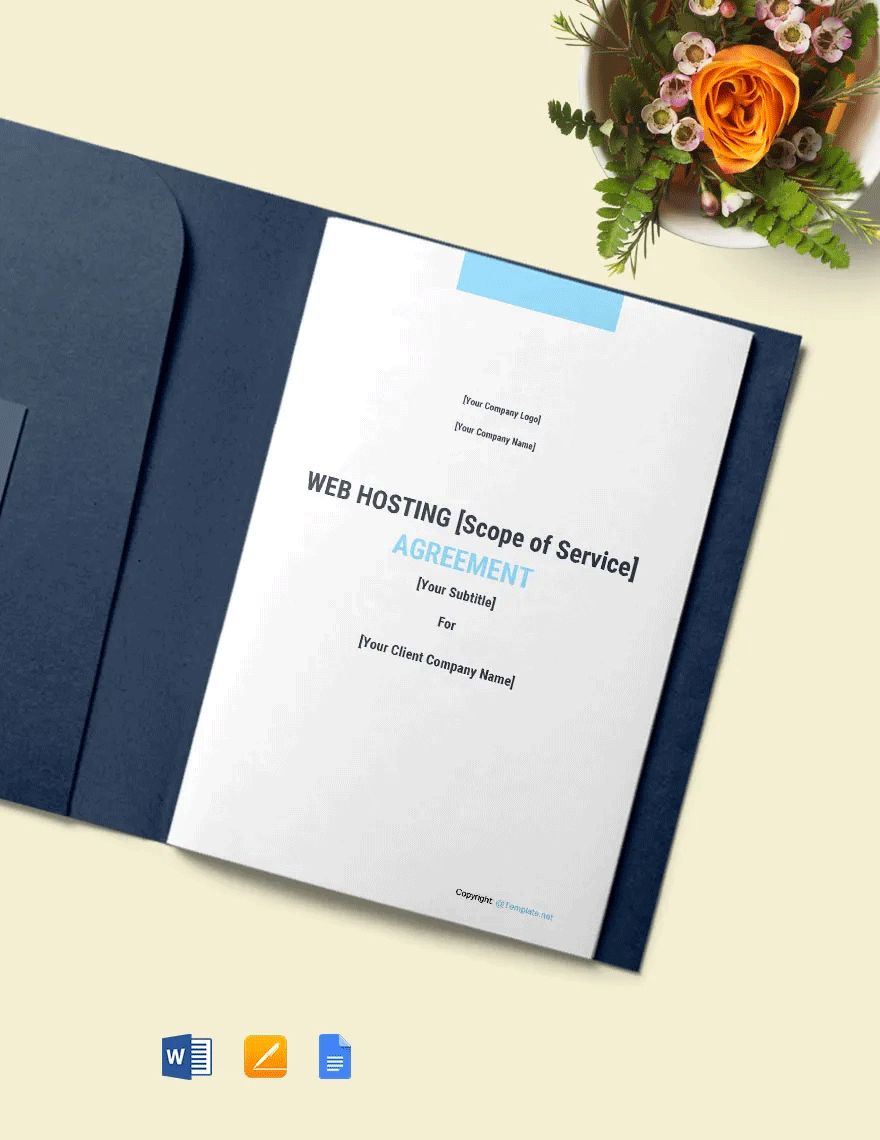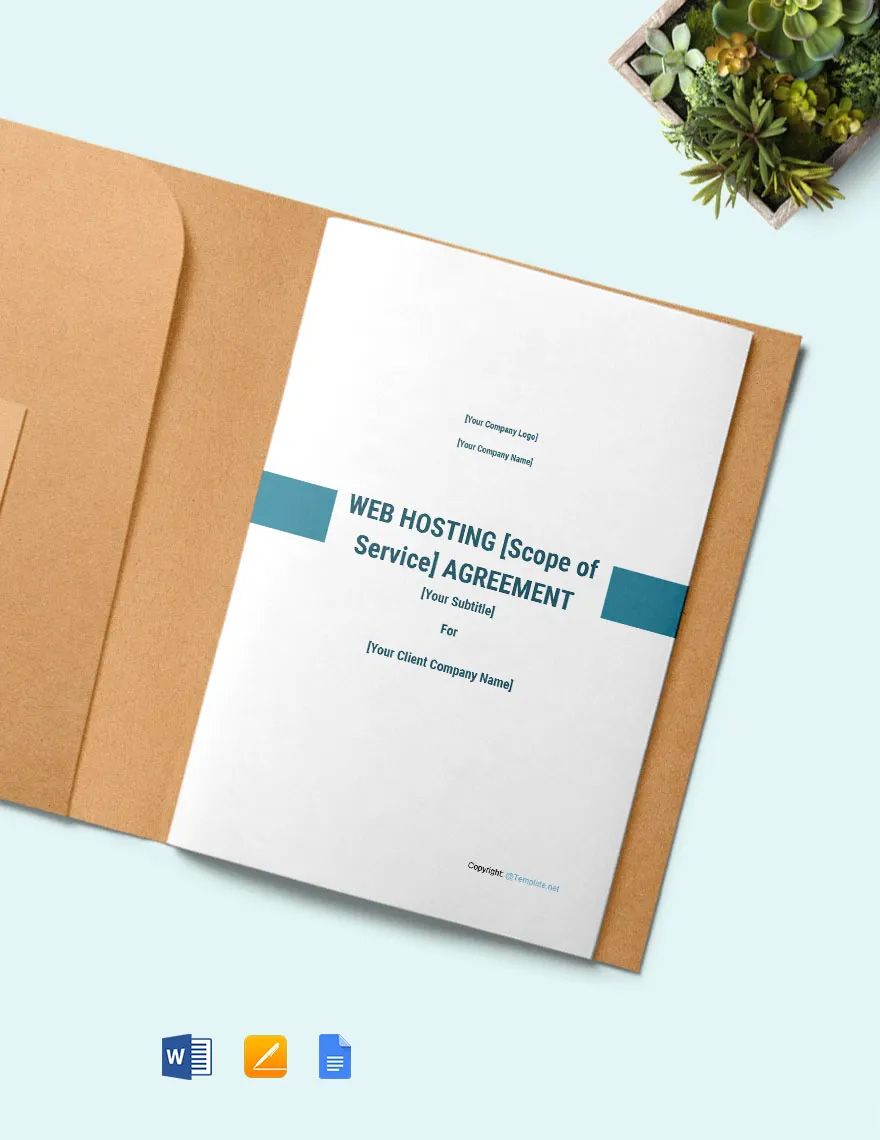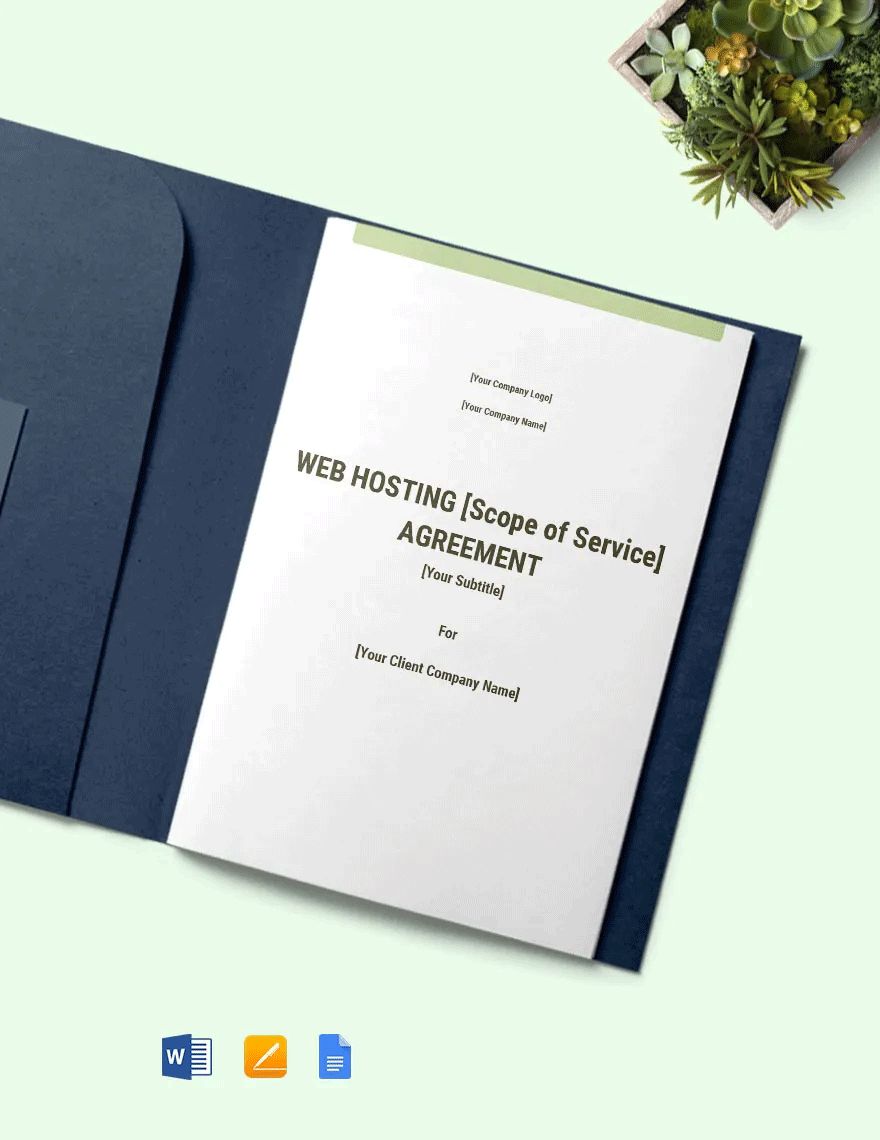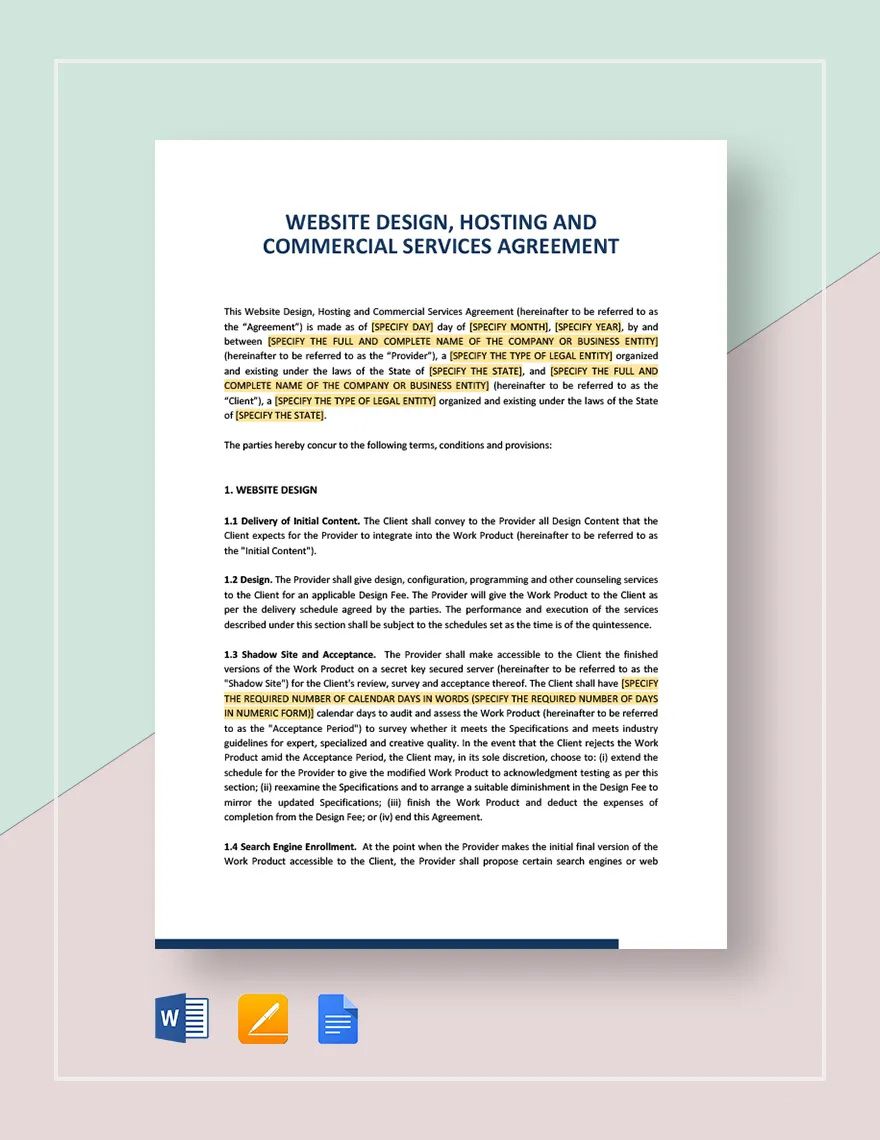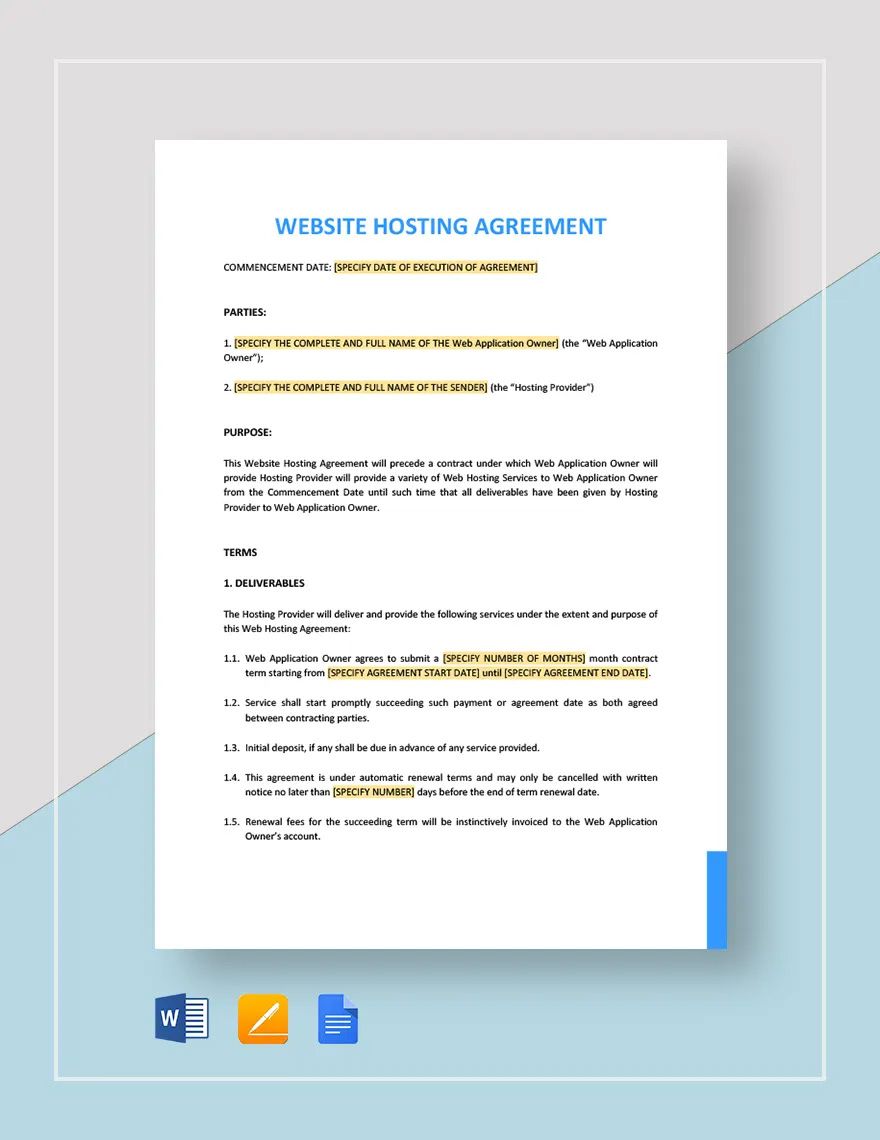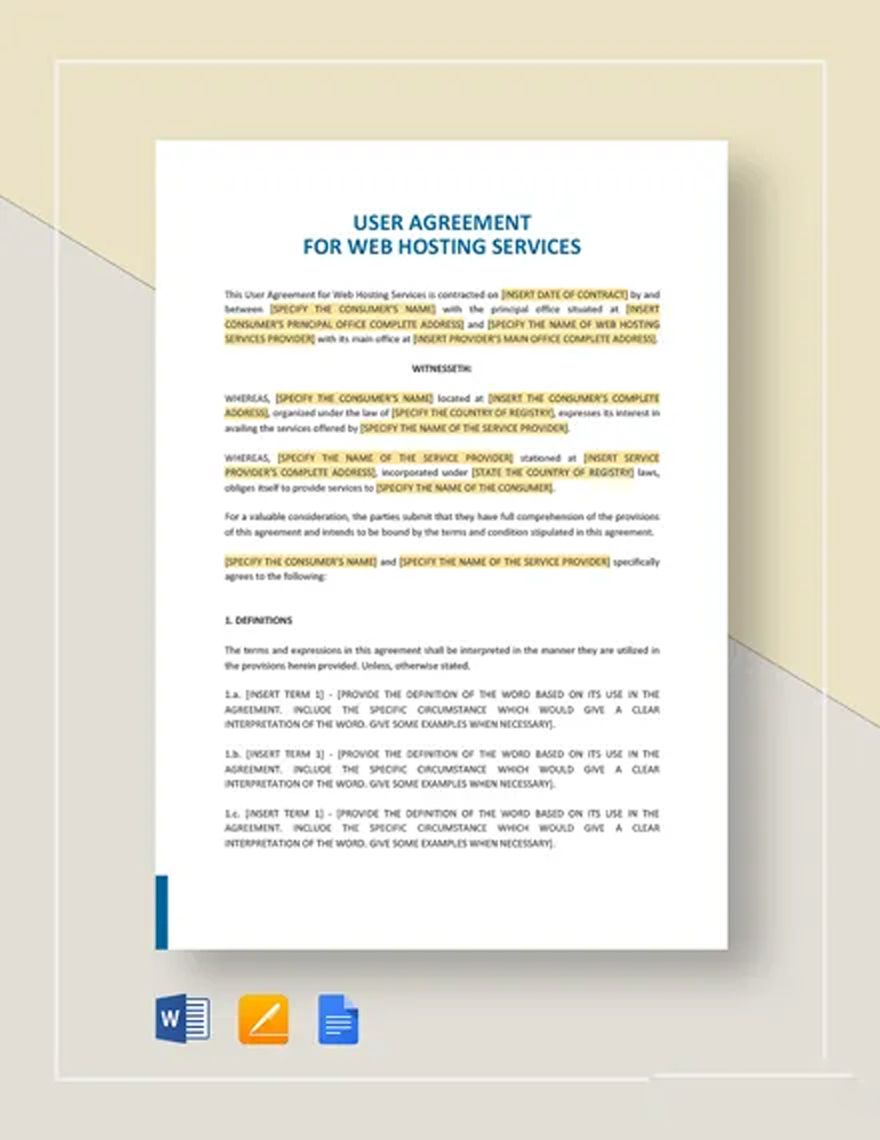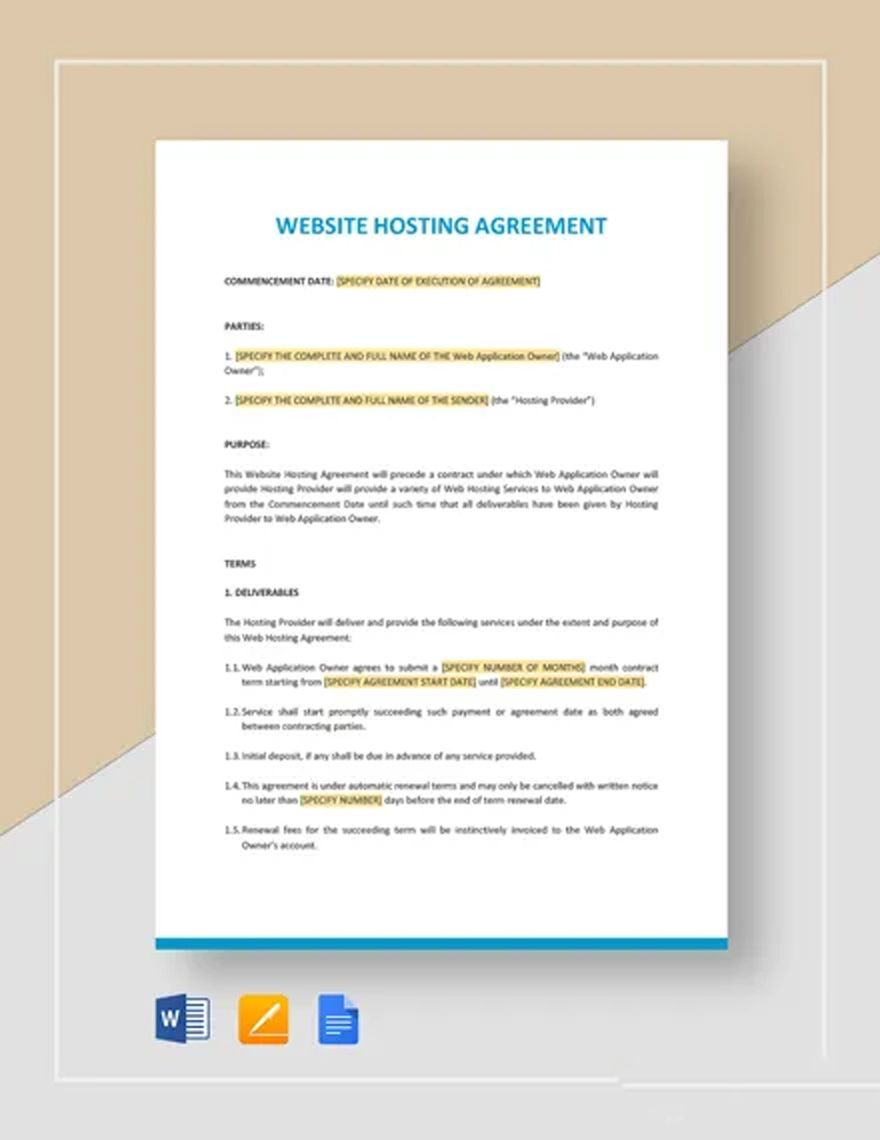Bring Your Contractual Clarity to Life with Hosting Agreement Templates from Template.net
Keep your business relations smooth, legally sound, and stress-free with the Hosting Agreement Templates by Template.net. Designed for business owners, IT professionals, and entrepreneurs, these templates help you clearly define terms and expectations, ensuring both parties are aligned. Whether you need a comprehensive agreement for a new client or wish to update terms with an existing partner, our templates are here to assist. Each template includes crucial details like terms of service, payment schedules, and termination clauses, so you have all your bases covered. No legal expertise is required; just download and customize professional-grade designs to suit your specific needs effortlessly.
Discover the many hosting agreement templates we have on hand, each crafted to simplify your legal documentation process. Start by selecting a template best suited to your situation, then easily swap in your company logo and business details. Further tweak colors and fonts to align with your brand identity, ensuring consistent professional presentation. Add personalized touches by dragging and dropping icons or graphics, and enhance your document's readability with AI-powered text structuring tools. With regularly updated templates, the possibilities are endless and require no legal jargon expertise. When you're finished, download your tailored agreement or share it via email or print, ensuring seamless communication channels for all involved parties.


